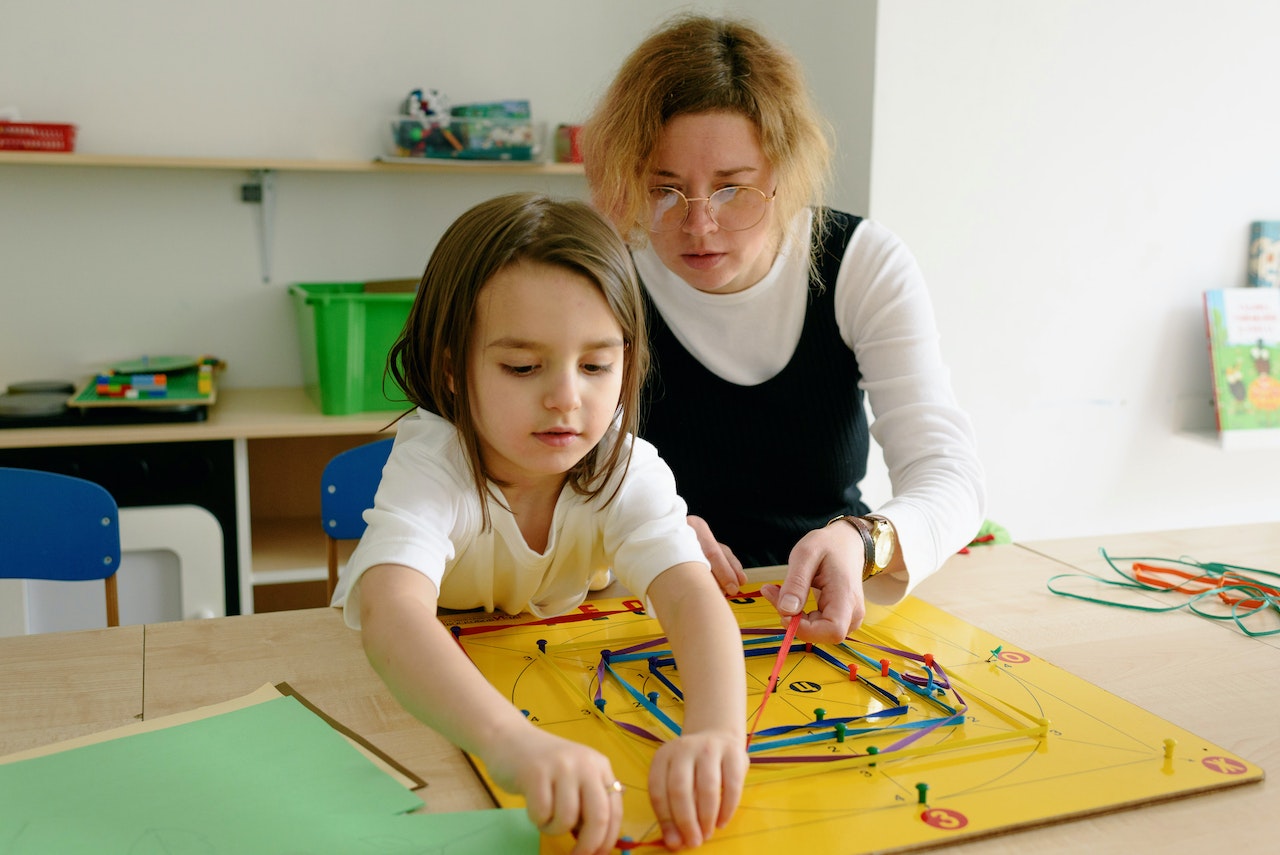
Unlocking Effective Communication: Developing and Assessing Listening Skills in Key Stage 1 Students
Importance and Development of Listening Skills in Key Stage 1
Listening skills play a vital role in developing young learners in listening skills key stage 1. Actively listening not only aids in understanding and interpreting information but also lays the foundation for effective communication and learning. Children can grasp instructions, follow directions, and engage meaningfully with their peers and tutors for home schooling by listening attentively.
In Key Stage 1, children experience significant cognitive and linguistic development. They begin acquiring language skills and expanding their vocabulary. Listening becomes essential for comprehending spoken language, identifying sounds, and recognising patterns. Actively engaging in listening activities allows children to develop their auditory discrimination, memory, and comprehension skills.
Teachers can employ various practical strategies to enhance listening skills in Key Stage 1. Reading aloud and storytelling sessions cultivate a love for literature and improve listening skills. Following a story, students can engage in discussions, retell the tale, or answer comprehension questions, strengthening their listening comprehension and memory.

Playing audio recordings of conversations, interviews, or instructions allows students to focus solely on listening without visual distractions. Teachers can follow up with comprehension questions or activities based on the content to reinforce understanding. Pairing or grouping students for discussions or problem-solving activities encourage active listening and collaboration, as they take turns listening and responding, promoting attentive listening skills and fostering communication.
Creating a supportive classroom environment that genuinely values the importance of listening is also crucial. Visual aids, gestures, and facial expressions can support comprehension and engagement during listening tasks. Teachers can display pictures, use hand gestures, or act out instructions to reinforce understanding. Encouraging active participation and providing regular feedback also promote the development of listening skills.
Activities and Strategies to Enhance Listening Skills in Key Stage 1
Enhancing listening skills in Key Stage 1 is vital for fostering effective communication and optimal learning in young learners. Teachers can employ a variety of activities and strategies to engage students and develop their listening abilities.
- Storytelling: Reading aloud and storytelling sessions cultivate a love for literature and improve listening skills. After listening to a story, students can engage in discussions, retell it, or answer comprehension questions, strengthening their listening comprehension and memory.
- Audio recordings: Playing audio recordings of conversations, interviews, or instructions allows students to focus solely on listening without visual distractions. Teachers can follow up with comprehension questions or activities based on the content to reinforce understanding.
- Pair and group activities: Pairing or grouping students for discussions or problem-solving activities encourages active listening and collaboration. Students can take turns listening and responding, promoting attentive listening skills and fostering communication.
- Listening games: Incorporating interactive listening games such as “Listen and Draw” or “Guess the Sound” can make listening activities enjoyable for young learners. These games help develop auditory discrimination and concentration.
- Visual cues and gestures: Visual aids and facial expressions can support comprehension and engagement during listening tasks. Teachers can display pictures, use hand gestures, or act out instructions to reinforce understanding.
- Technology integration: Utilising technology can enhance listening skills. Educational apps, online videos, or podcasts provide opportunities for students to listen to various content and develop their listening comprehension.
- Reflective discussions: Engaging students in thoughtful panels after listening activities encourages them to analyse their listening strategies, identify challenges, and set goals for improvement.
Assessing and Evaluating Listening Skills in Key Stage 1 Students

Assessing and evaluating listening skills in Key Stage 1 students is crucial to monitor their progress and provide targeted support for improvement. Various assessment methods can be employed to gain insight into students’ listening abilities.
Observation: Observing students during listening activities allows teachers to assess their engagement, attention, and understanding. Teachers can gain valuable insights into individual listening skills by noting their responses, body language, and interactions.
Informal questioning: Asking open-ended questions related to the listened content can help gauge students’ comprehension and memory. Teachers can assess their ability to recall details, make connections, and draw conclusions from the information they hear.
Retelling activities: Assigning retelling tasks where students summarise or narrate what they have listened to assesses their listening comprehension. This activity helps identify their ability to extract main ideas, sequence events, and use appropriate vocabulary.
Worksheets and quizzes: Designing worksheets or quizzes focusing on listening skills enables teachers to assess specific aspects, such as identifying details, recognising sounds, or understanding instructions. Multiple-choice questions or matching exercises can be used to evaluate listening comprehension.
Self-assessment and reflection: Encouraging students to self-assess their listening skills promotes metacognition and empowers them to reflect on their strengths and areas for improvement. Teachers can provide self-assessment checklists or reflection prompts for students to evaluate their listening abilities.
Rubrics and checklists: Developing rubrics or checklists specific to listening skills provides a structured framework for assessment. These tools can outline criteria such as attentiveness, response accuracy, and active engagement, enabling teachers to evaluate listening skills systematically.
Integrating Technology in Developing Key Stage 1 Listening Skills
In today’s digital age, integrating technology can significantly enhance the development of listening skills in Key Stage 1 students. Teachers can create engaging and interactive learning experiences that foster effective listening by leveraging various technological tools and resources.
Educational apps: There are numerous educational apps designed to develop listening skills. These apps offer audio-based content, interactive activities, and quizzes that challenge students to listen attentively and comprehend information effectively.
Online videos and podcasts: Accessing age-appropriate videos and podcasts allows students to listen to authentic language and diverse content. Teachers can curate a collection of videos or podcasts aligned with the curriculum to provide students with opportunities to practice their listening skills while exploring different topics.
Digital storybooks: Digital storybooks often incorporate audio narration, sound effects, and interactive features. Students can listen to the narration while following the text, enabling them to make connections between spoken and written words, enhancing their reading and listening comprehension simultaneously.
Virtual field trips: Virtual field trips offer students the chance to listen to experts, tour different places, and engage in immersive learning experiences. These experiences develop listening skills and broaden students’ knowledge and understanding of the world.
Interactive whiteboards and multimedia presentations: Utilising interactive whiteboards or multimedia presentations allows teachers to incorporate audio elements into lessons. Including audio clips, songs, or recordings of conversations helps students practice listening to different voices, accents, and intonations.
Online discussion forums: Creating or using educational platforms with collaborative features encourages students to listen actively to their peers’ contributions. These platforms allow students to engage in meaningful conversations, practice turn-taking, and develop critical listening skills.
Digital recording and playback: Students can benefit from recording their voices and listening to the tapes for self-assessment. This practice helps them identify areas for improvement, monitor their progress, and refine their pronunciation and intonation.

Supporting Language Acquisition through Listening in Key Stage 1
Listening is crucial in supporting language acquisition in Key Stage 1 as it provides the foundation for developing vocabulary, comprehension, and communication skills. By implementing strategies that promote effective listening, educators can create a language-rich environment that nurtures the language-learning journey of young learners.
Read-aloud sessions: Regular read-aloud sessions expose students to rich and varied language. Teachers can select age-appropriate texts, emphasising clear pronunciation and expressive reading. This activity enhances listening skills, introduces new vocabulary, and promotes a love for literature.
Vocabulary building: Engaging students in vocabulary-building activities that involve listening helps expand their lexicon. Teachers can introduce new words through audio recordings, songs, or storytelling and provide opportunities for students to practice using the words in context.
Language games: Interactive language games, such as “I Spy” or “What’s Missing?” encourage students to listen attentively and identify specific words or objects. These games promote vocabulary recognition, listening comprehension, and language production.
Language immersion: Creating an immersive language environment through audio materials, videos, and language-rich displays supports language acquisition. Students can listen to conversations, songs, and dialogues in the target language, enabling them to absorb new words, sentence structures, and intonation patterns.
Dialogues and role-plays: Engaging students in discussions and role-plays provides opportunities for listening and speaking practice. Students can listen to model conversations, participate in pair or group dialogues, and act out scenarios, fostering communication skills and language acquisition.
Authentic audio resources: Exposing students to original audio resources, such as songs, podcasts, or news clips, exposes them to real-world language use. Original materials provide students with diverse accents, vocabulary, and cultural contexts, enhancing their listening comprehension and cultural awareness.
Language reflection and discussion: Encouraging students to reflect on their language learning experiences and discuss language use deepens their understanding and metacognitive awareness. Students can share their listening challenges, strategies, and discoveries, fostering a supportive language-learning community.







